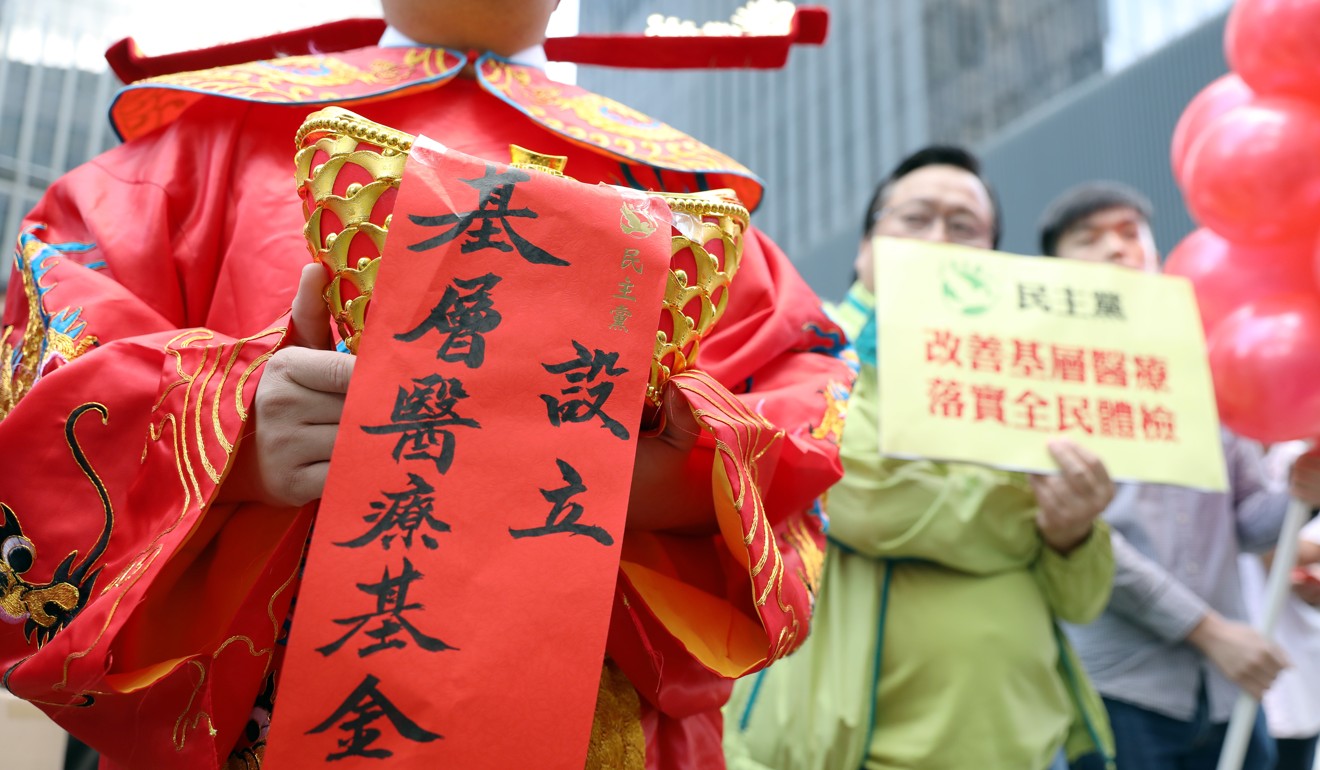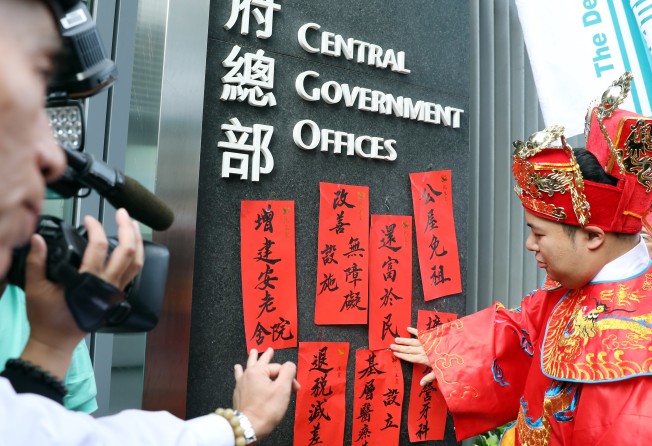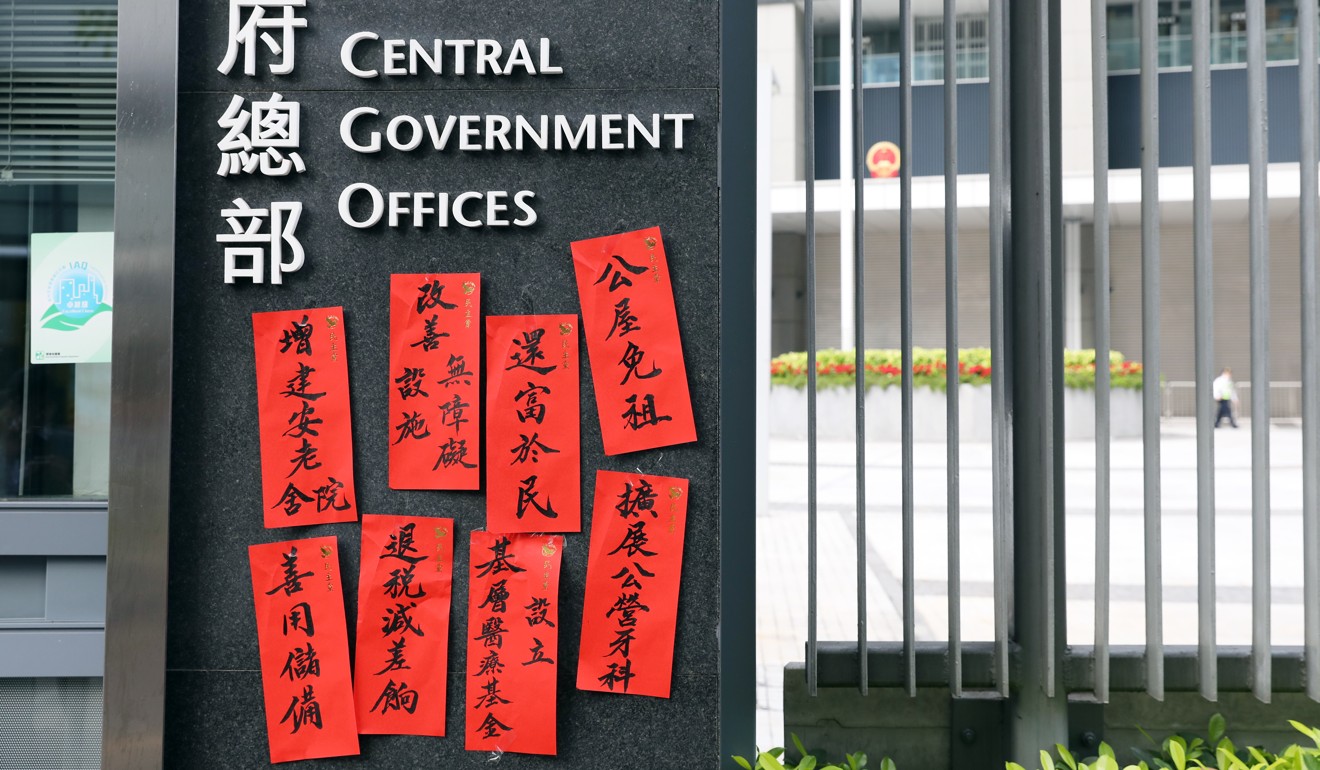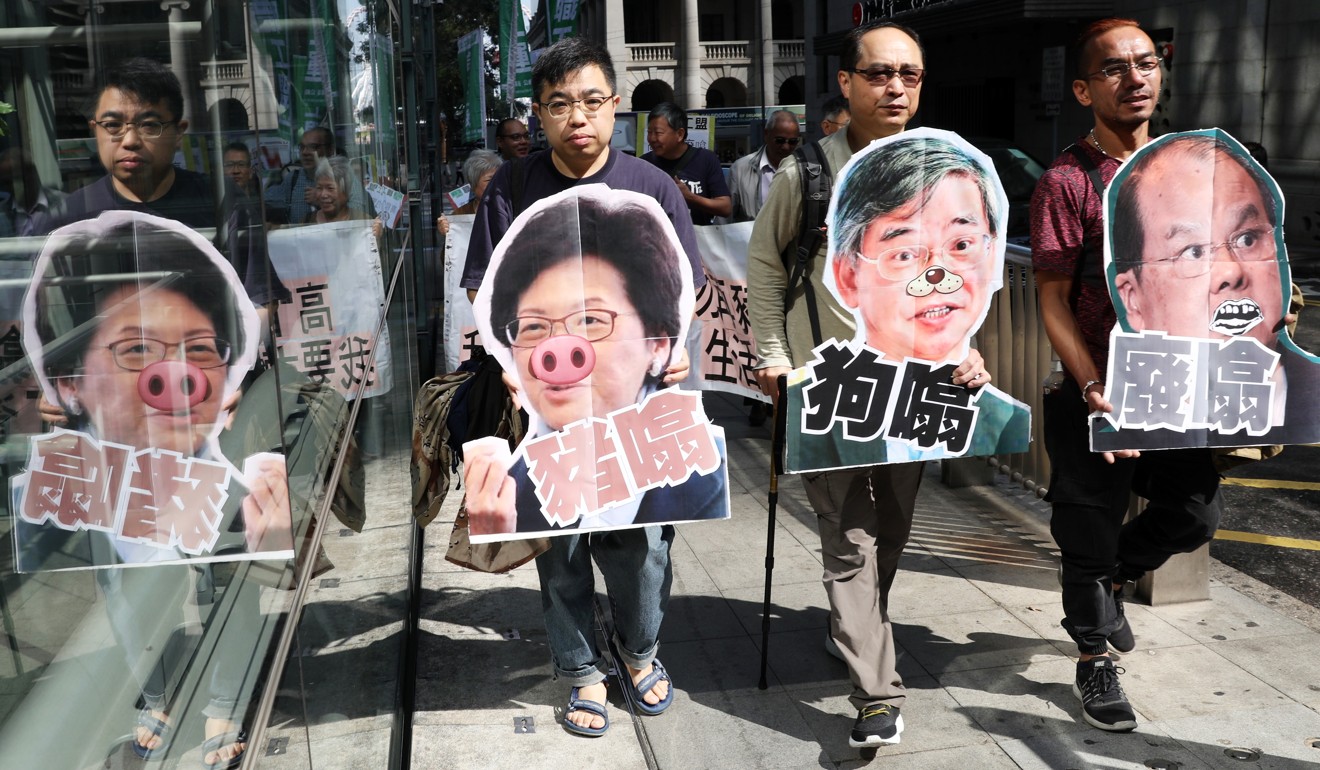
Parties call for bigger spending on health care and welfare in Hong Kong’s budget but avoid asking for direct cash after handout debacle
- Politicians from both camps put pressure on government with petitions and protests
- Demands include money for primary health care and injections into pension funds

Politicians from across Hong Kong’s political divide piled pressure on the government to put more money into welfare and health care policies in its upcoming budget but – after a furore over handouts – steered clear of asking for direct cash for residents.
On Thursday morning, just weeks before Financial Secretary Paul Chan Mo-po is set to announce his second spending blueprint at the Legislative Council on February 27, dozens of Democratic Party members staged a petition outside government headquarters in Admiralty, calling on the administration to share its surplus with the people.
Audit firm Deloitte earlier estimated a HK$54.9 billion (US$7 billion) government surplus this year.

After unveiling his first budget last year, Chan was pressured by political parties into giving a cash handout of HK$4,000 – not included in the original plan – to Hong Kong residents aged 18 and above who did not own property or benefit from government allowances. Those given tax breaks would get the difference between HK$4,000 and the concessionary amount.
The scheme, which opened for applications this month, quickly drew fire as forms ran out and critics complained the process was cumbersome. The government has since simplified the process.
With respect to the coming budget, Democratic Party chairman and lawmaker Wu Chi-wai asked the government to put at least HK$10 billion toward developing primary health care in the city.
“Most of the resources are spent on inpatient services, and the spending on the front line is not enough,” Wu said.
He also suggested that the city import more doctors from overseas, on condition that they work in the public sector.

Last month, the government injected a one-time emergency fund of HK$500 million for public hospitals and clinics in Hong Kong to combat the winter peak flu season.
Critics, including health care professionals, questioned if the one-off infusion would help solve long-term issues such as a manpower shortage.
On the topic of welfare, during a radio programme the same day, the pro-democracy Labour Party called on the government to protect employees’ pension funds in their Mandatory Provident Fund (MPF) accounts, before the scheme’s so-called offsetting mechanism is scrapped.
The mechanism allows bosses to use their portion of contributions to employees’ MPF accounts to cover long-service and severance payments.
Last year, the government proposed subsidising employers to the tune of HK$29.3 billion over a period of 25 years in a bid to win their support for terminating this controversial aspect of the scheme.
“The government is offering money to employers to alleviate financial pressure from [scrapping] the offsetting mechanism. But what about the employees?” party chairman Kwok Wing-kin asked, adding that the government should inject HK$10 billion into employees’ MPF accounts.
Kwok also urged the government to set up a HK$20 billion fund to support cancer patients and those diagnosed with rare diseases.

Separately, the pro-democracy Hong Kong Confederation of Trade Unions marched to Chief Executive Carrie Lam Cheng Yuet-ngor’s Government House residence in Central to call for legislation on standard working hours.
On Wednesday, the pro-establishment Federation of Trade Unions staged a protest outside government headquarters.
Federation vice-chairwoman Alice Mak Mei-kuen, a lawmaker, said the government should give out education subsidies for families earning less than HK$30,000 a month, and let people aged 65 to 69 get government allowances without going through a means test.
Additional reporting by Tony Cheung